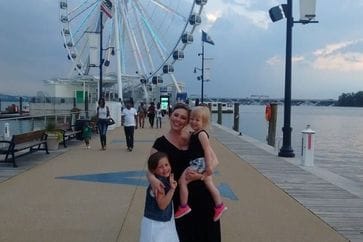 I remember exactly where I was the day “it” happened — the first time someone referred to me as a “special needs mom.” I had just walked over to a group of women who were chatting in a semi-circle when one of them casually introduced me to the others. “This is Ali,” she said, “She’s a special needs mom.” I paused for a moment. My chest tightened. I forced a smile. Maybe it was the easy way her words seemed to float out into the air around me, or maybe it was the way in which her simple phrase seemed to fill every empty space in that semi-circle. Maybe it was the lack of reaction from the others, or maybe it was the simple fact that hearing those words connected with my name — for the first time — was something I hadn’t prepared myself for. An uneasy feeling settled in my stomach. I never had envisioned that parenting a child with special needs would define me in the minds of others. There was a lot more to me than being a “special needs mom.” For example, I’m an Aquarius, I like Thai food, I enjoy shopping for sunglasses, I can’t catch a ball to save my life, I hate the way suede feels and I love a good show tune. I walked away from that experience confused. I wanted to hate what she said, and yet, another part of me desperately clung to her words. As much as I detested the phrase “special needs mom,” I surprisingly found some comfort in it. For the first time since my daughter was born with hypotonia, I almost felt a sense of belonging. Maybe I had finally found people who could understand me — people who understood the struggle of shopping for shoes that can fit over braces, people who shared my frustrations about wait times for neurology appointments, people who could celebrate with me the “inchstones” in our lives. Maybe I had finally found my “village.” Slowly, I became accustomed to the introduction, to the conversation, to the title — to being a “special needs mom.” But that all changed the day a woman insinuated I didn’t belong in the special needs community. “Well, your kid has some struggles,” she stated, “but all kids do. At least your kid walks and talks. She doesn’t really have special needs.” I didn’t know if her words were meant to be encouraging or exclusionary. My mind raced — almost as fast as my heart — but all words escaped me. Despite her hypotonia, my daughter functions well in many environments. But her hypotonia is still there. It’s hidden deep inside her muscles, causing her to have trouble walking up and down the steps or keeping up with her peers. It’s the reason she was delayed in all of her gross motor milestones. It’s why her fine motor skills are still a year behind her actual age. Just because her hypotonia isn’t always readily visible to the untrained eye, it doesn’t mean her hypotonia isn’t there. But does the invisibility of her disability mean we don’t belong? Does the fact her disability is mild in comparison to some children mean that she doesn’t have special needs in other people’s eyes? I pondered these questions and many more, and I came to one conclusion: Maybe I really don’t belong in just one specific mom circle. I am a mom in the middle. A mom of a child without a diagnosis but with delays. A mom with many worries and with little answers. A mom who feared her child may never walk, but who now chases her child in the backyard, through the grocery store and around the house, especially at bedtime. A mom who spends her days at the park playground and her evenings at physical therapy sessions. A mom of a child who appears typical to some and anything but typical to others. I exist in a sort of limbo — between two worlds, both of which meet my needs and yet, could never really understand what I experience. I am a mom in the middle, and I know there are other moms like me. Moms who are searching for their place in the murky waters that exist between the typically developing world and the special needs community. Moms who are trying to figure out just where they fit in. To other moms in the middle, on days when you feel lost, when you think no one really understands what you’re experiencing, when you are left questioning where exactly you belong, please know this: You are not alone. I will always have a spot right by me for you — right in the middle — and everyone is welcome here. Article originally posted on The Mighty
0 Comments
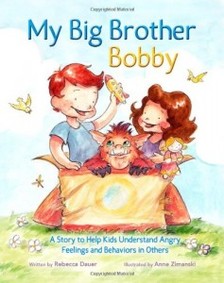 Being angry, seeing red, meltdowns, and freaking out are just a few words we have to describe what happens when a person loses control of themselves. My Big Brother Bobby: Understand Angry Feelings and Behaviors of Others by Rebecca Dauer helps siblings, classmates, friends and other family members to understand children who struggle with emotional and behavioral problems. For some of our children their lives or their environment become overwhelming. They just can’t deal with all the sensory bombardments and may act out, withdraw, become emotional, run, etc. My Big Brother Bobby is a fun, imaginative story that educates children on the importance of understanding and coping with anger in others in a warm and easy to understand way. It isn’t your typical children’s book. It is more of a communication bridge between parents, social workers, OTs, psychologists and children who are dealing with emotional issues, specifically those living with siblings with angry outbursts. Rebecca’s blog is a wealth of information about siblings of children with special needs. We thank Rebecca Dauer for her guest post introducing her book and agreeing to take part in our Author Interview Series. Lorna: Congratulations of your book, My Big Brother Bobby: Understand Angry Feelings and Behaviors of Others. What is the story behind this book? Why did you think a book on this topic was needed? <<Rebecca Dauer: The story behind the book is loosely based on stories from friends and family as well as my personal experiences. When I was younger, there was very little materials or outlets for siblings and I felt the need to change it. After doing research for the book, I found an immense amount of support from the sibling community. Everyone can relate to this book, whether it is a parent, sibling, cousin or friend who has a monster in their belly, it is hard on everyone and especially for young children. I wanted to bring to light the real struggles and emotions that children have and to bridge the communication gap for parents and health professionals.>> Lorna: You and the illustrator, Annie Zimanski, make a very good team. Annie’s illustrations bring your story to life! Usually how does the author of a picture book work with the illustrator? It seems to me there is a lot of communication that most go on to finish with a beautiful book like My Big Brother Bobby. <<Rebecca Dauer: Great question! I found Annie on elance.com after searching through several children’s book illustrators. I loved her work and she related well to the book. The first step in the process is to understand the story and then, creating the characters in the right medium. For example, they could look digital, acrylic or have a soft pastel look. Each change of color, character and background give a different look and feel to the book. Once the characters are built, then you break down each illustration by page with a sketch. Once each page is sketched and tweaks have been made, full color and background detail is added. Then there are a few final edits and that’s it! I enjoyed working with Annie and would recommend her to anyone looking for a great illustrator.>> Lorna: Is this your first book? You chose to self-publish it. What advice do you have for other authors who are thinking of self-publishing their book? <<Rebecca Dauer: Yes this is my first book. Self-publishing is a bit more streamlined and inexpensive because you don’t need an agent or wait until you are signed. If you have a PDF version of your book, you simple buy an ISBN and upload online. I used CreateSpace through amazon where books are purchased on demand. I was also able to add the book to the app store. I also became a member of the Independent Book Publishing Association (IBPA) for its resources and helpful guides into the publishing world. I recommend using those, becoming a member of IBPA, creating a website and promoting through social media.>> Lorna: In your book you mention a support organization for siblings, Sibling Leandership Network and the Sibling Support Project. Please tell us what they offer siblings. <<Rebecca Dauer: The SLN and the Sibling Support Project are completely dedicated to helping the siblings of children who are physically or mentally disabled. The SLN provides siblings of individuals with disabilities the information, support and tools to advocate for their brother or sister to promote the issues important to them and their entire family. They are also very involved in policy and advocacy. The Sibling Support Project headed by Don Meyer (who wrote a review for my book) is a national effort dedicated to the life-long concerns of brother and sisters of people who have special health, developmental, or mental health concerns. Sibshops are International and give children a community-based peer support program and provide awareness of siblings unique, lifelong, and ever changing concerns through workshops, websites, and written material. It is an amazing community and organization. If you would like more information, please visit below: -To keep reading the article please click: HERE 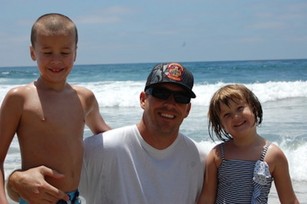 Below is a letter I’ve written to my daughter. She’s the younger of our two kids. But I already see that in some situations, she takes the big sister role. I so badly want her to understand her brother’s autism. I know she notices that he gets more attention than she does… and I don’t think it will stop. Anyways, here it is. Dear Lucy, I’ve been thinking about writing this letter to you for about a year now. In that time, I’ve been noticing you noticing me… and it hasn’t always been positive. For the most part I think I’ve been doing a pretty good job as a parent and daddy. But I know I’m letting you down in a crucial area of your life, and I’m not sure that I can stop. In the last couple of weeks, I’ve made you cry, and it breaks my heart because I know it will not be the last time I do so. I’ve ignored you, favored your brother, and I know it hurts your heart. I just want to let you know — I’m aware of this, and it hurts my heart too. You’re the baby of our family, and as much as I want you to always be Daddy’s baby, I also want you to grow up quickly so you can gain a certain amount of understanding. I guess I want this for you so I don’t feel like I’m damaging you as much. You see, your older brother has autism, and I fear that it takes from you at times. I started a nonprofit organization because of your brother, in hopes that we could help other families. It takes up a ton of my time. When you ask me to play while I’m working, I tell you, “No” way more than I tell you, “Yes.” I see that it breaks your heart. It breaks mine too. The local news did a interview with me, and your brother was in it. You watched it and didn’t understand why you weren’t included. I didn’t have a good answer. I didn’t think you would understand. We shot a brand new “About Us” video, and you asked me, with tears in your eyes, “Why am I not in that video?” Once again, I didn’t have a good answer for you. You left the room, and then the tears hit my eyes. Your brother has behavior therapy twice a week for two and a half hours a session and a socialization class once a week. You don’t understand why you don’t get to do these things. I try to explain it. I clearly don’t do a good job. You’re developing at a rapid pace, and I’m in constant amazement at how easy you learn. It also serves as a constant reminder that your brother doesn’t have it this easy. I need to stop and celebrate you more. You deserve it. You and your brother are playing on the same soccer team for the first time, and you’re holding your own with these older kids. Daddy is so proud of you! But, if I’m being honest, I catch myself watching your brother more than I watch you. And it’s not fair to you. I think it’s because I expect you to keep getting better. When I watch him, I’m hoping he gets better. I’ve tried a couple of times to explain autism to you. I’m pretty sure you don’t fully understand. I’m not sure why I expect you to, when most people 10 times your age don’t get it. Someday you will… I just wish it was today. Please know that Daddy is doing his best and also know that he wants to do better. I love you way more than you know. For original article: http://themighty.com/2014/09/a-letter-to-my-daughter-about-her-brothers-disability/ 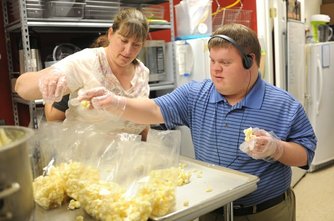 Blake Satterfield is proud to open the door and greet guests at Special Kneads and Treats on the Lawrenceville downtown square. He shows guests to a table and to the gourmet cupcakes on display behind the bakery counter. Blake has Down syndrome and wouldn’t be the first person many businesses would put at their front door. But Blake and others with special needs are the reason why Special Kneads and Treats opened four weeks ago. “From his first day here, he has felt included and productive,” said Blake’s mother, Pat Satterfield. “It’s a wonderful thing for our guys to give back to the community and feel accepted and useful. Once they get the hang of things, when they see a need, they get things done and make people feel welcome.” Special Kneads and Treats at 132 E. Crogan St. is a nonprofit bakery that provides job skills training to special needs adults. It was opened by Tempa Kohler and her husband, Michael, when they purchased the former Sweets on the Square. “We prayed for only provisions and a building and God gave us a bakery with ovens, freezers and an established client base,” Tempa Kohler said. “And now we’re building our own client base. It’s awesome and definitely a God thing.” The Kohlers opened the bakery to help their son Bradley, 24, who was diagnosed with Fragile X Syndrome when he was 7 years old. Fragile X Syndrome is a genetic chromosome disorder that causes mild to severe mental impairment. “Kids with special needs can stay in the Gwinnett School system until they are 22 years old and then they age out,” said Kohler. “We’re here to employ special needs adults and give them a place to come and work and hopefully learn a skill set that they can take to another location.” Kohler is operating the bakery with one employee and five special needs adults who often have family members who stay and help with baking duties. The special needs adults have opened the door and greeted guests, washed dishes, cleaned tables, swept the floor and helped with lettering on cupcake wrappers denoting when they were made. They also help in the kitchen when adequate supervision is in place. Adults with special needs are loyal,” Kohler noted. “They’ll be the first to show up and if you show them a job, they will do it and do it well.” To Read the full article click here: http://www.gwinnettdailypost.com/news/2014/mar/01/lawrenceville-bakery-provides-job-skills-training/ 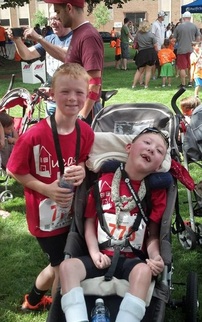 Lucas was born with lissencephaly, a rare brain malformation that only occurs in 85,470 births. It can result in seizures, difficulty swallowing, and other serious problems. When Noah heard about the local YMCA youth triathlon, he told his parents he wanted to take part, but with one very special request—he wanted to take his brother Lucas with him! Noah trained for almost three months before the triathlon began. On the big day, July 12th, he cycled for 3 miles, swam over 200 yards and ran for 1 mile pushing Lucas in a special buggy. "They have an amazing bond. They're best friends and they do everything together" said mom Alissa Aldrich says. "The connection and the love that they share is truly unique." These brothers show us the meaning of love and friendship, and prove that no matter the obtabcles, you can do anything when you put your heart and soul into it. You don’t see incredible acts of love every day, but this 8-year-old shows us it doesn’t take much to make a huge difference in the lives of others. Read more at: http://www.the-open-mind.com/8-year-old-completed-a-triathlon-while-carrying-his-disabled-brother-the-whole-way/#R4IByoYcLyxIzGYv.99 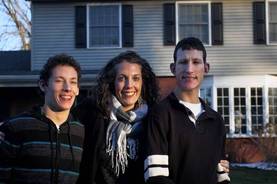 Growing up with a severely disabled brother, Abby Brown felt less like a sister than like a "third parent." Nigel, two years her junior, was born with a rare disease called linear sebaceous nevus syndrome that left him non-verbal and needing assistance to eat, dress and use the toilet. As a child, Brown mourned the normal things she couldn't do, like take family vacations or go to the mall, without her brother having a seizure. As an adult, she nervously anticipates a time when she'll be in charge of his care."Where will he live when my parents are unable to take care of him?" wonders Brown, 21, a student at Nipissing University in North Bay, Ontario. "How will I manage taking care of aging parents, a disabled brother and children of my own? Will I ever find a partner who is willing to take on the responsibility of caring for my sibling with me?" Brown's concerns are emblematic of the complex, lifelong and generally unsung relationships between disabled people and their siblings, who often log more years than anyone supporting their special needs brothers and sisters without getting much support of their own. "I find myself frequently in the ludicrous position of having to remind my friends, my colleagues, people who worship at the altar of family-centered services, that siblings are part of the family," said Don Meyer, director of the Seattle-based Sibling Support Project (siblingsupport.org) and creator of Sibshops, workshops that bring together the siblings of special needs kids for recreational activities and peer support. On his Facebook group Sibnet, an adult sibling support site with 1,300 members, Meyer is struck by how common it is for 40-year-olds to proclaim it's their first time meeting others who grew up with developmentally disabled siblings. "People who work with families of kids with special needs would never let the parents wait 40 years to introduce them to their peers," Meyer said. Lifelong challenge A sibling's need for support begins early, Meyer said, as growing up alongside a disabled child forges complicated feelings, from embarrassment to resentment to many forms of guilt. Some siblings feel pressure to be high achievers to balance the scale. Many yearn for the friendship of a "normal" sibling relationship. The experience has its benefits, too: Siblings of special needs kids tend to develop early maturity and increased patience, diplomacy, tolerance and acceptance of difference, Meyer said. Many pursue helping professions, where they serve as powerful advocates for marginalized populations. As parent caregivers get older, a sibling's role takes on new importance, and underscores the value of nurturing the siblings' relationship. About 75 percent of the 4.6 million developmentally and intellectually disabled people in the U.S. live with their families. "If we affirm and validate their contributions as they grow up, we increase the chances that they will elect to remain lovingly involved in their (disabled siblings') lives," Meyer said. To read more click here: http://articles.chicagotribune.com/2013-03-28/features/sc-fam-0326-disabled-sibling-20130326_1_disabled-siblings-sibling-support-project-don-meyer 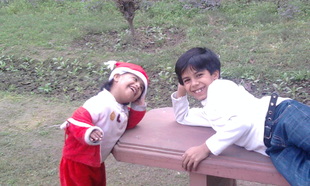 Most of the time the sibling relationship between a ‘typical‘ and a ‘special needs’ child is based on parental or ‘professional’ opinions or perspectives and most of the time, they only present one side of the story. Something that we have always read on nicely written parents’ blogs, i.e. powerful, respectful, uncomplicated and passionate. While the truth is that even if it seems like all ‘sugary with love‘, it cannot remain consistent throughout their growing up years. Those who think otherwise read too much fiction and need a reality check! Think about it, can any relationship be all hunky-dory? Do we really look close enough or scratch the surface a little and have open heart to heart talks with our ‘typical’ children? Do we take it for granted that they are young and do not go through the similar or usual roller coaster ride of emotions that we as parents experience. The Truth?The truth is that a sibling’s role is still the least talked or discussed about, while they remain that one person who is going to share the longest lasting relationship with our child of special needs, more than the parents! We like to believe that as parents we have it hardest, but pay a little attention and you will be surprised to find out that it’s not always compassion, sympathy or love that our ‘normal’ child is experiencing. They too have concerns which are in some ways identical to what we as parents go through like a need for information, guilt, blaming themselves, loneliness, future concerns and in some ways quite different emotions like peer issues, resentment, sibling rivalry and a pressure to perform. It also makes a great difference if the sibling is elder or younger to the child with disability. It is because the younger siblings don’t know any other way of life; he is born into that situation. But in case of older siblings and especially if there is a large gap, they remember the attention, the time they shared alone with the parents. From the Horse’s MouthWhile reading and researching about this issue, I came across a radio show excerpts on ‘Siblings with special needs change childhood’. The show was asking people to share their ‘experiences of having a brother or a sister with special needs’. I was all ready to hear some nice emotional sentiments and touching stories of how that experience changed the lives of these callers and how they were eternally thankful for having the brothers or sisters they had, but I had the reality biting me in few seconds when I heard the reactions of a Girl with a special needs brother. In her own words, ‘you know, as we grew up, I can relate too to being kind of ashamed of my brother but also kind of missing out on a brother-sister relationship like my friends had. And that was difficult too. You know, and a lot of attention does go to the child. I can remember coming home from school a lot of times, and my Mom, you know, was somewhere with my brother for some sort of an appointment, and this went on and on for like a couple of school years this way” I almost felt wet in my eyes. Was it my story? Was I giving too much attention to my daughter with Down syndrome? I started listening again to be sure if that call was just an exception, but there were more calls to follow. To Keep reading click the link below: http://www.twominuteparenting.com/5-things-to-make-sure-your-sibling-is/ 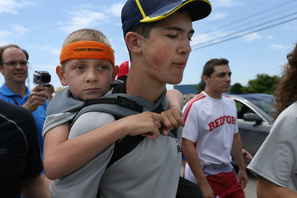 A Michigan teen trekked 40 miles with his 7-year-old brother on his back to raise awareness of cerebral palsy, the cerebellar degenerative disorder that prevents his sibling from walking himself. Hunter Gandee, 14, braved blustery conditions during the two-day hike from his hometown of Temperance, Mich., to the University of Michigan in Ann Arbor. His brother Braden has struggled with cerebral palsy his entire life. Hunter toldABC that although he wrestles in 100-degree conditions at Bedford Junior High, “it’s nowhere near how hard Braden works.” The teenager originally concocted the idea after raising $350 in green wristbands for cerebral palsy awareness month at his school. Afterward he wanted his efforts to reach beyond his classmates. “We want kids to understand Braden,” Hunter told MLive. He was further inspired by a dream that his mother had of him carrying Braden to Mackinac, Mich., where the family had often vacationed. This led to two months of preparation for carrying his 50-lb. brother on his back. The courageous duo were joined by other family members for the final portion of the journey, which nearly ended early because Braden’s legs were badly chafing. But after a brief rest-stop and repositioning Braden, the brothers completed the mission in 30 hours. “We pushed through it,” an exhausted Hunter told ABC. “And we’re here.” On the walk’s Facebook page, the Gandees express hope that the walk will earn the attention of engineers and doctors for “the need for innovative ideas in mobility aids and medical procedures.” To see the original article click here: http://time.com/2846313/michigan-teen-carries-brother-40-miles-for-cerebral-palsy-awareness/ 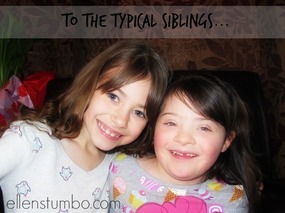 I know you’ve had to sacrifice so much, and I wish you hadn’t. For the many times you’ve thought it wasn’t fair, we’ve felt it too. And if you’ve had to miss out on life experiences, please know that we wish we could offer you the world. Perhaps at times you’ve felt overlooked, because your sibling’s needs demand all of your parents’ attention. But they see you, they see you in the cracks of their vision, and their hearts hurt for the moments they’ve had to sacrifice time with you. But many nights they think about you, of the wonderful person that you are. I want you to know that the pride and love they feel for you could never be measured, you are what keeps them going many times. You make their days brilliantly beautiful. And you’ve told us – your sibling with a disability has affected you too. Yes, there’s been sacrifices and some things you’ve had to give up, but you’ve gained so much from your sibling too. You’ve said your siblings with disabilities have shaped you into who you are today. We look at you, and we’re sure there is not a more compassionate, caring, accepting, and kind human being walking on this earth. We’ve seen you be frustrated with your sibling, because after all you are siblings. We’ve seen the frustration in your eyes. But then something happens – perhaps it is a look that as parents we don’t recognize – but we see that frustration be replaced with love. You can be annoyed by hands pulling at you, and suddenly be a willing participant in the biggest, sweetest embrace that any siblings could ever share. I see the love in your eyes for your sibling, and I cannot believe that the two of you can share this kind of love. It’s not typical, but it runs so deep, and it reflects a quiet strength in you that brings me to tears. We’ve seen you stand up to the bullies, even when it was scary. Because you understand so deeply that it isn’t right to diminish anyone, in any way. And you have extended not only a smile, but a friendship to the kids that others so easily overlook. Because you don’t, you don’t ever overlook people. You notice them, you affirm them. With your smile and friendship you remind them that they matter in this world too. You are perhaps more mature than someone your age. You’ve probably had more responsibilities than most of your peers. I guess in some ways you’ve lived a different life, life impacted by disability. And every day you’re out there, moving in this world with an understanding about the beauty and value of life that makes you stand out, and understanding that few people posses. You’ve known these truths from a young age, they’ve always been a part of your life. As the parents, we arrived to those truths much later in life. And you smile at life, enjoying every moment. You are stirring the people around you, helping them to see what you see, to know what you know. You are affecting people’s perceptions of disability as you advocate for your sibling, as you give them a voice when needed. You have willingly embraced this role…it humbles me, it brings me to tears. You are moving those around you, and you will continue to do so. As parents, we hope to make this place a better place for our kids. But as the siblings – with hearts so full of acceptance, compassion, an understanding of the value of life – you will go out into this world and change it. Not just for your siblings, but for all of us. Thank you! If you ever wonder who we look up to, it’s you. We could not be prouder or love you more fiercely. Originally posted by: http://www.ellenstumbo.com/typical-siblings/ 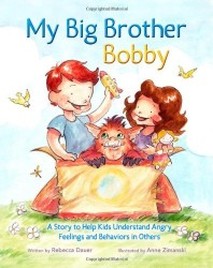 The team at Special Needs Book Review was happy to receive copies of the wonderful children’s book, My Big Brother Bobby: A Story to Help Kids Understand Angry Feelings and Behaviors in Others by Rebecca Dauer with illustrations by Annie Zimanski. Congratulations to Ms. Dauer for self publishing her children’s book about a little girl with a big imagination who teaches other children how to understand angry feelings and behaviors in others. The last pages of this beautiful picture book are great conversation starters for parents and teachers to share with their young children. There is a page with seven questions to discuss, one page of strategies to help a child calm-down when they get upset or really scared, and one page to prompt discussions about feelings. Ms. Dauer has information about The Sibling Support Project that is a national effort dedicated to the life-long concerns of brothers and sisters of people who have special health, developmental, or mental health concerns. Also on the last pages of Ms. Dauer’s book, I learned the mission of the Sibling Leadership Network is to provide siblings of individuals with disabilities the information, support and tools to advocate with their brothers and sisters and to promote the issues important to them and their entire families. - See more at: http://www.specialneedsbookreview.com/2014/05/27/big-brother-bobby-understand-angry-feelings-behaviors-others/#sthash.uROHy5vc.dpuf  Two teenage boys wowed the Britain's Got Talent judges with their rendition of Faith Evans and Twista's "Hope," changing the rap verses to reflect their feelings about bullying. The duo — Bars and Melody — delivered an emotional performance that brought audience members to their feet and tears to some of their eyes. The video from last week's show has since gone viral, attracting nearly 8 million views. "I like the fact that they wrote their own song based on life experiences," judge Simon Cowell told ITV on the network's website after the audition. "People are going to root for them and they've got this great friendship that is so obvious when you watch them together. But the good news doesn't stop there. It appears Bars and Melody has influenced bullies to apologize to their victims or stop their bullying altogether! To Read more please click on the link below: http://mashable.com/2014/05/14/britains-got-talent-viral-bars-melody-bullying-song/ 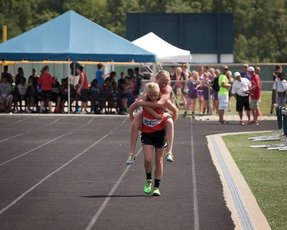 Twin sisters Chloe and Claire Gruenke might have come in last place in their recent track race, but they deserve a medal anyway for the inspiring way they made it across the finish line. The 13-year-old girls, both eighth-graders from Trenton, Illinois, were competing in the 800-meter race at the Southern Illinois State track meet on May 10, when Chloe took a tumble, according to KTVI, a local news affiliate in nearby St. Louis. “I felt something pull and pop in my thigh and then around the first curve on the second lap it just hurt too bad and I couldn’t go anymore so I just fell to the ground,” she explained in an interview with the station. But she didn’t stay there long. Instead, Claire pulled her sister on to her back and carried the injured twin for the remaining 370 meters all the way to the finish line. Twins have a special bond, of course, but Claire simply says her motivation for the move was “love and sportsmanship.” Piggybacking a human of equal size and weight isn’t easy, but she credits the roaring crowd for the surge of energy she got. Of those supporters cheering in the crowd was the girls' father, Doug Gruenke. He tells Yahoo Shine that he knew that Claire wouldn’t leave her sister, and her actions didn’t surprise him, but he didn’t know if she would be able to carry Chloe the whole lap around the track to the finish line. Coree Waltering, one of the twins’ coaches at Wesclin Junior High School, calls the good deed a “happy coach moment.” Another coach, Ted Crail, is thankful he happened to be wearing sunglasses because there were definitely tears in his eyes. To Read more click here: https://shine.yahoo.com/parenting/twin-carries-injured-sister-across-the-finish-line-160401450.html_ 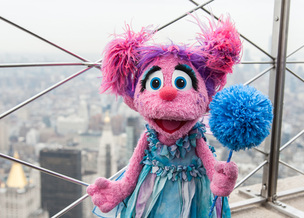 The nonprofit behind Big Bird, Elmo and Abby Cadabby is launching a new effort to reduce stigma surrounding kids with autism and help those with the developmental disorder learn life skills. Through a new initiative dubbed “See Amazing in All Children,” Sesame Workshop said it will create digital tools to help children with autism learn to play with others and complete everyday activities like brushing teeth, getting dressed and trying new foods. In addition, the organization said it will use Sesame Street’s brand and characters to educate the public about autism and emphasize that kids on the spectrum are much like their typically developing peers. “This has become one of the most widely-discussed topics in childhood development, yet we have found that there’s a lack of understanding among the general public about children with autism,” said Jeanette Betancourt, Sesame Workshop’s senior vice president for community and family engagement. “Sesame Workshop has a long history of addressing diversity, acceptance and inclusion, and we felt we could play a critical role in reducing misconceptions by highlighting the commonalities children with autism share with all children.” Beyond its efforts aimed at children, Sesame Workshop said it also plans to work with Exceptional Minds, a Sherman Oaks, Calif. vocational center that teaches young adults with autism computer animation and post-production skills, to help create content. http://www.disabilityscoop.com/2014/04/04/sesame-street-autism/19257/ 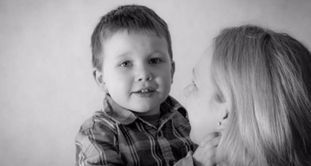 A young schoolgirl touched the heart of her teacher when she wrote an essay wishing her brother could be “healed of autism”. “Every person needs a Rachel in their lives,” wrote Co Meath teacher Kathryn Lenaghan, after she read the impromptu essay by nine-year-old Rachel Cahill. Although written in February, her mother Caroline Cahill asked for the letter to be highlighted for World Autism Awareness Day, which is tomorrow, April 2nd. The third class student began the essay after she had finished her day’s work at St Paul’s NS in Navan. Titled “I wish, I wish, I wish,” she begins: “Since my little brother Matthew was two, I have always had the same wish. When Matthew was two, he was diagnosed with autism. Autism has no cure. Some children with autism can talk, understand and communicate, but Matthew can’t. “When you have autism, your brain is different. Matthew would hear things more loudly than us, he feels things more differently and sees things we don’t. So ever since Matthew was diagnosed with autism, my wish was for Matthew’s autism to be healed.” Click here to read more: http://www.irishtimes.com/news/health/i-wish-i-wish-i-wish-my-brother-could-be-healed-of-autism-1.1745836 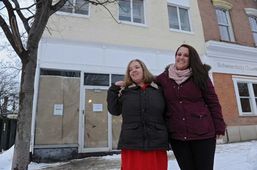 Sara Mae Hickey knew she wanted to be a difference maker for a long time. She considered the Peace Corps after she graduated fromSkidmore in 2012, but she soon realized her most important cause was at home — her sister Emily. And so at 23, Hickey is the owner of Puzzles Bakery & Cafe, which is set to open sometime between April and June at 515 State St. in Schenectady and will employ adults on the autism spectrum and who have other disabilities, a group studies have shown to be severely underemployed. She's also the president and founder of the nonprofit The Autism Initiative, which helps provide educational and recreational programming to those in the autism community. Hickey's sister Emily, who is on the cusp of turning 21, has autism and is considered low-functioning. She requires constant care, has a limited vocabulary for her age and is unable to live on her own. When Hickey was in kindergarten, she toted a pamphlet about autism along to class, a result of her parents' longtime involvement with the local chapter of the Autism Society of America. In a lot of ways, Emily's disability shaped Hickey's path. "My whole life she's always been a big inspiration to me. I've always seen the bigger picture. We know so many families who are affected by this disability," says Hickey, who has bachelor's degrees in anthropology and government from Skidmore College and a master's certificate in nonprofit management from SUNY Purchase. "I don't think everyone really understands it's a lifelong disability. These children become adults, and they live a very long time." To read more: http://www.timesunion.com/default/article/Puzzles-to-fill-a-special-need-5261216.php#photo-5931224 For more on The Autism Initiative, visit theautisminitiative.org. For more on Puzzles Bakery & Cafe, visit www.facebook.com/Puzzles.Bakery.Cafe Contact Sara Mae Hickey about either organization at [email protected]. |
AuthorRebecca is an independent publisher working to help siblings of children with emotional challenges. Archives
April 2017
Categories
All
|
My Big Brother Bobby: A Story to Help Kids Understand Angry Feelings and Behaviors in Others
 RSS Feed
RSS Feed
